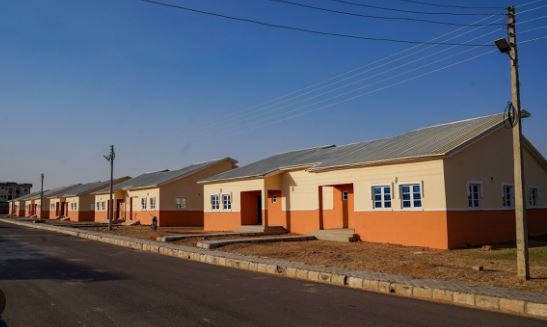Experts and stakeholders in the real estate industry in Nigeria have tasked the Federal Government to address the challenges in the sector.
Speaking at the 9th Edition of the West Africa Property Investment Summit, the stakeholders said the government should reshape the narrative and position the sector for future success.
The Head of Real Estate for West Africa at Stanbic IBTC, Tola Akinhanmi, said the ability of the Nigerian real estate market to withstand macro and micro challenges has resulted in sustained growth across the sector and into emerging asset classes.
Akinhanmi said: “The real estate asset class, known for its long-term nature, has proven its resilience over the past five to six years amid various shocks.
“This resilience has allowed the market to diversify and attract new investments from both local and offshore players.”
Despite the increasing resilience, Akinhanmi acknowledges the need to strengthen capital liquidity for continued growth and sophistication in the sector
“A key impediment to growth remains capital. While we’ve witnessed growth in offshore capital investments over the past decade, recent years have seen somewhat muted activity from a scale perspective. Liquidity in the asset class is crucial to unlocking further investment, necessitating a deepening of both institutional investors and developers to fully complete and optimize the investment cycle.”
On his part, the Director of Capital Market at JLL, Sandri Pepler, said the government needs to address issues in the management of the pension funds.
Pepler said: “I think in terms of local investment, your biggest source of capital is your local pension funds and if you benchmark Nigeria pension funds activity in commercial property in relative to more developed markets, it is still far behind.
“So, local investment into commercial property in Nigeria requires regulatory changes to reflect best practices in other markets.
“The government needs to develop a real estate investment trust fund to handle large estates, office developments, retail centres, and large industrial distribution centres. The regulatory environment needs to be updated because that would create the much-needed liquidity for further development.
“Once someone develops one property, he needs liquidity to do the next development and the bottleneck is always from the local capital perspective.
“From the foreign direct investment, there are some micro issues that we are all aware of in Nigeria around foreign currency. And until that is resolved, the broader economic level in the commercial real estate investment will be would not be resolved.”
The EDGE Green Buildings Market Transformation Programme at the International Finance Corporation (IFC), Temilola Sonola, said the government needs to consider green buildings to support climate change.
She said: “What we would like to see happen in the Nigerian market when it comes to the built environment is that a lot more of the buildings are built green rather than brown building. And we are here to show developers how easy it is to go green and that it is not as expensive as they think.
“In going green, you probably need about three to five percent on top of your capital rather than 30 per cent in some cases. It is simple to build green and we have an app online that you can use to go green for your building. Simply put, it is recertification made easy for our built environment.”
Source: News Telegraph
































